The rise and fall and rise of e-books, royalty descents, new arrivals, sudden departures, court cases, fake reviews and a proliferation of pirates – these were just some of the stories featured in our regular self-publishing related news posted here on the blog during 2015. Although our ALLi Director Orna Ross reflects that a modicum of stability settled over the vast world of books this year, there was no shortage of reports that had indie authors chattering and clicking. Missed any of them? Settle back with the mulled wine and read on, says our regular news-gatherer Valerie Shanley.
‘e-Obituaries' on digital books missed the big picture
A hot topic everywhere was the supposed decline in sales of digital books. In the US and Canada, the media declared they were in freefall, while good old reliable print books were on an Adele-level comeback. In the UK, the announcement by the Waterstones chain that “pitiful” sales of Kindles led to a decision to no longer stock e-readers prompted similar knee-jerk reports of a decline. But this wasn't the full story. In the case of the New York Times e-obituary, e.g., that was based solely on figures from the American Association of Publishers (AAP) tracking only trade published, Big Five author members.
Enter the Author Earnings autumn report and the broader picture. “As of September 2015, the US ebook market shows traditionally-published authors are barely earning 40% of all Kindle ebook royalties paid, while self-published indie authors, and those published by Amazon’s imprints, are taking home almost 60%. “Every day we’ve looked (at figures), self-published authors are bringing in more daily royalties on e-books than all of the authors from the Big Five combined, “ said Hugh Howey from AE.
ALLi Director Orna Ross also gave a more nuanced view in her opinion post stating again that reports of declining e-book sales ignore self-publishing which accounts for 30% of the e-book market globally.
To paraphrase Mark Twain, rumours of the death of e-books would seem greatly exaggerated over 2015.
New arrivals and sudden departures
Wattpad, the platform claiming 40 million-plus users launched a new Writers Page as a central hub for authors getting started, while one year on from its US launch, Amazon steadily opened up its reader-powered Scout platform to the wider world.
New Hungarian company Publish Drive proclaimed their mission statement to ‘upload an e-book in less than a minute’. e-book distributor Smashwords signed a new retail and library distribution agreement Gardners, the UK's largest book wholesaler, followed by another three handshakes in December with Tolino, Odilo and Yuzu. (see email for link). Draft2Digital
built more tools into its service including a mailing list set up with just a tick box on the dashboard and Vook re-launched as ‘author-friendly’ and author-centric book publishing platform Pronoun.
There was an Aw-no moment with news that Flipkart, India’s largest online retailer with over 12m book titles, was closing, quickly followed by relief that they are transitioning their systems and subscribers to Kobo, offering competition to Amazon and Google Play’s Indian market as reported to us by ALLi Ritesh Kala.
It was also the end of the line for Authonomy, as HarperCollins UK (HC UK) closed its online community for aspiring writers at the end of September.
The Independent Publishing Magazine’s (TIPM) Publishing Service Index for October 2015, which
looks at over 90 companies, showed Amazon’s CreateSpace the top performer, just ahead of IngramSpark by a narrow margin. Now in its fifth year, the index is referenced by many indie authors when searching for a service provider, while editor Mick Rooney stressed how in turn, feedback and comments from authors also contribute to the vast amount of information from companies and monitoring services.
ALLi launched its new-look ALLi Partner Services Directory 2015 at the Frankfurt Book Fair, updated their guide books and announced the 2016 launch of an exclusive, twice-yearly guide in association with Toby Mundy Associates on how authors can sell rights to their work, explained by Orna and Toby in this ALLi Insights video.
Sunset on e-book subscription services and summer of discontent on royalties
Oyster announced it would “sunset” its e-book subscription service in 2016 amid reports that staff would be swallowed up in Google, while the air was sucked out of another e-book subscription platform in the autumn with Blloon saying it was “putting our service into hibernation mode while we review our strategy.”
And then, of course, KU. Discontent continued to flow towards Amazon from summer onwards over the announcement that indies whose books are available through Amazon’s lending services Kindle Unlimited (KU) and Kindle Owners Lending Library (KOLL) would now be paid royalties for how much of their books are read, rather than at point of purchase. Orna Ross discussed authors' concerns in a timely post.
Meanwhile StreetLib opened further avenues in deals with e-book library OverDrive and Latin American e-book retailer BajaLibros. Pressbooks Public, a “new indie author composition” service offering self-publishing software and services across the US was announced during the NaNoWriMo project, between US library digital patron services provider BiblioBoard and Canadian online book-production specialist Pressbooks.
Romance came to an end between Scribd and voracious readers as the subscription service began culling more novels in the genre, the speculation being that it was unprofitable with so many readers and paying publishers retailer-level margins for the digital books.
The changing face of the bookstore
Amazon US caught everyone by surprise on opening its first bricks and mortar in Seattle in early November. It could eventually benefit self-published authors with one ALLi member commentating that “An Amazon-based, physical bookstore might combine the best of both worlds, especially if they offer on-site, print-on-demand books.”
ALLi author and our blog commissioning editor Debbie Young announced #authorsforbookstores our campaign in support of independents back in April, while news of independent bookshops closing was countered by new ones opening up – and offering more than just books.
We referenced The Bookseller report on a forthcoming London store with not only wine and music, but also a full printing-press in operation for readers looking for that something-completely-different experience. Co-founder Rohan Silva of the yet-to-be-named store indicated how bookshops are being re-appraised, saying “We think there is a big un-met demand for the type of bookshop we want to produce. If you look at many companies which started off as websites, such as Moo.com, they are starting to open physical spaces.”
The books and beverages theme also marked ‘Civilised Saturday’ billed as a “restorative to Black Friday”. This UK bookstore antidote, with its genteel air of lime cordial and crustless sandwiches and supported by The Booksellers Association, claimed a minor victory for leisurely book-browsing and buying.
Not quite on par with Amazon's physical store, but Walmart notched a surprising first by stocking a self-published print-on-demand book – Beautiful Redemption: A Novel by indie returnee Jamie McGuire.
Court dismissals, the great online ‘fake-off, and ahoy there pirates
The decade-long Authors Guild v. Google copyright case litigated in the US took another turn with rejection of infringement claims made by the writers’ organisation. The Second Circuit Court of Appeals in New York found that the Google Book Search database “provides a public service without violating intellectual property law.”
Two legal actions in the US against Author Solutions (ASI), the self-publishing provider on the radar of the ALLi Watchdog team, were dismissed and discontinued respectively. Why was the company under scrutiny by ALLi? (Indies unfamiliar with the background can read up on author Dave Gaughran’s posts here and also this conversation in 2014 between ALLi Director Orna and Andrew Phillips, ASI’s Chief Executive Officer.)
The court decisions still left many questions unanswered and reactions were varied among ALLi members and partners.
- “We might never find out what the settlement is, and AS is allowed to continue acting the way it always has,” said author David Penny.
- “Too bad the case never progressed beyond procedural matters,” said ALLi legal advisor Helen Sedwick. “However, the court papers confirmed what a lot of us suspected about ASI.”
Still in the legal department, the European Commission declared its aims for a single digital market to
encompass the rapid speed of change wrought by the internet and how it affects copyright, while inequality in European law of tax rates charged on e-books and print was challenged by Poland’s constitutional court, a move expected to be followed by other EU members. (The EC ruled in January this year that digital books, unlike print books -which have a reduced VAT charge – are electronically supplied services and not goods, and so were not entitled to reduced VAT rate status.) One exception to this rule is the Netherlands, where consumers took the matter to court last Spring and won the right to re-sell ebooks.
In the first action of its kind brought by UK publishers, the High Court granted The Publishers Association’s application for a blocking order against several UK Internet Service Providers (ISPs). Society of Authors reported this blocking order applies to 7 overseas-based websites which have been found to contain substantial amounts of infringing content on a massive scale.
Amazon filed a lawsuit against over 1,000 people it claimed were writing fake reviews on the US version of its website. The legal action followed a sting by The Sunday Times in which a fake e-book, Everything Bonsai!, rose to the top of the Amazon UK Kindle chart after the paper paid reviewers $5 (£3.26) for five-star reviews via the website Fiverr.
Google Play stopped enrolling any new self-published authors in May on its books platform, on foot of
increasing incidents of piracy on the site where fraudsters scanned entire e-books, changed the cover, and then sold same as their own work. The New York Times reported fraudsters were opening accounts, ostensibly to publish their own work, and then selling digital copies of popular, and not so popular, e-books that they had not written. The scam was brought to Google’s attention in February this year and the pirate accounts were deleted.
The writing was on the Great Wall
China’s booming e-publishing market continued to grow, as we referenced in two reports published in The Literary Platform, as well as an interview in Alliance Lab with Tong Zhilei, founder and director of ChineseAll.com.
Christine Sun was welcomed as our new ALLi China Ambassador. Christine is a bilingual writer, translator, reader and literary critic based in Melbourne, Australia, with publishing experience in diverse markets across the world including the US, UK, Australia and Taiwan. Her website eBook Dynasty is the only publisher of Chinese eBooks outside China.
Elsewhere in Asia, inspired looked to Ilham, a smaller portal similar to the giant Wattpad (currently locked out of China). Launched in Malaysia in 2013 by the Karangkraf Media Group, Publishing Perspectives reported that submissions to Ilham (meaning Inspiration in Malay) are growing steadily.
e-Tech phones home
The rise of mobile smartphone reading was a topic cropping up in most discussions on digital books. It wasn’t only readers looking at their mobiles, but also publishers considering how best to adapt content to smaller screens as reported in the wider media.
Twitter CEO Jack Dorsey explained how reading your phone is now the new reading-the-back-of-the-serial-box and how his social media portal should be“ the first thing everyone in the world checks before they start their day “.
But there was debate as to the value of social media for indies in garnering a reading community. Digital Book World reporter Rob Eager claimed there is little correlation between the amount of Facebook followers an author displays, e.g., and the amount of actual book buyers those numbers generate, quoting research showing email is 40 times more effective than all social media combined at acquiring new customers.
Author, tv presenter and blogger Michael Alvear claimed there is no evidence that Facebook can sell books – unless you’re a big name with a massive following. Midlist author Mark Dawson countered, saying “Facebook advertising is the single most powerful marketing and promotional tool that is available to authors, be they traditionally or self-published.”
Listening carefully and minding languages
We heard a lot about how good listeners gained steadily on readers during 2015. Pandora White, audio publisher at Orion, declared audio the “fastest-growing genre in publishing”. Based on the company’s latest Digital Census she added, “There has been a complete revolution when it comes to audio, with younger people listening to audiobooks for the first time, purely because of the gadgets and smartphones we all have.”
AmazonCrossing editors appeared at the Frankfurt Book Fair, accepting submissions for literary translations following their announcement of a $10m investment over the next five years. A new Amazon Crossing website was opened for authors, agents and publishers to suggest titles across most fiction genres for translation. As we reported, the site is for submissions by trade-published authors writing in languages other than English – but as with Amazon, and the equally evolving publishing world, that may soon read another way.
A good financial year? Or was giving work away for free a clever strategy?
Founder of OpenBooks.com Michal Kicinski argued the positive benefits of the Pay What You Feel (letting readers download an e-book then pay what they feel it’s worth) business strategy for authors, ultimately connecting them with more readers.
Our ALLi Director debated this very issue in an ALLi Twitter Chat Should Authors Give Their Book Away For Free which you can tune into again here .
Elsewhere, ALLi Partner Member Jessica Bell gave away her How to Self-Publish Your Book to read for free on her blog, partly as a marketing strategy, to attract new fans to her Writing in a Nutshell series, but the main reason being to inform other indies in best benevolent style.
But what was the real/unreal cost of self-publishing last year? Blueink Review's monthly blog to help guide authors new to the field of self-publishing and what they might expect, was reviewed by Mick Rooney of The Independent Publishing Magazine, who said “For the most part, I think the feature is an excellent idea but it does underline the vast difference of experience and cost among authors.”
Author and ALLi Joanna Penn gave insight into how she makes a respectable income. This The Creative Penn post detailed how as an author-entrepreneur, all of her income stems from writing, but she separates that into books and blogging-related work, since the latter brings speaking opportunities and affiliate income as well as direct sales.
Why self-publish?
The question was still asked in 2015, and was answered succinctly by ALLi’s own Orna including in her manifesto on re-thinking “the book”, and what it means to “publish” and be “a publisher” at The FutureBook Author Day in December. As a tireless ambassador for going the indie route, Orna spoke about why every writer should self-publish (at least once), from Florida to Frankfurt and points in between, while also publishing her own limited-edition “Secret Rose” publishing project, timed to honour #Yeats2015.
She was again named by The Bookseller as one of the 100 most influential people in publishing and the dedication in her book is “For all the writers everywhere: dare.” It all points to the growing validity of the self-publishing choice, when done well, and the need for authors to motivate and support each other to write and publish great books.
Here's to an eventful indie year gone by, to an even more creative and productive 2016 — and to ALLi who keeps so many of us connected. If you haven't joined us yet, maybe it's time you did.
Dates for your 2016 literary Diary
JANUARY
Self-Publishing Summit: Jan 16 2016 [London, UK ] Rock & Read Vegas Author Event: Jan 15 – 17 2016 [Las Vegas, USA] Writers in Paradise: Jan 16 – 23 [Florida, USA] Annual Winter Poetry & Prose Getaway: Jan 15 – 18, 2016 [New Jersey Shore, USA] San Diego State University Writers’ Conference: Jan 22 – 24, 2016 [San Diego, USA]
FEBRUARY
Pub West Conference: Feb 4 – 6, 2016 [Sante Fe, NM, USA] Coastal Magic Convention: Feb 4 – 7, 2016 [Daytona Beach, FL, USA] Karachi Literature Festival: Feb 5 – 7, 2016 [Karachi, Pakistan] Amelia Island Book Festival: Feb 18 – 20, 2016 [Florida, USA] San Francisco Writers Conference, Feb. 11-15, 2016 [San Francisco, USA]
MARCH
Mountains to Sea – dlr Book Festival: Mar 9 – 13, 2016 [Dublin, Ireland]




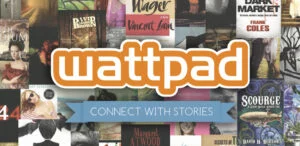
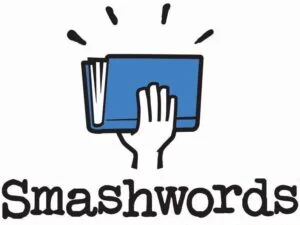
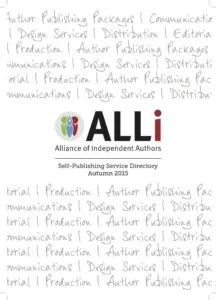

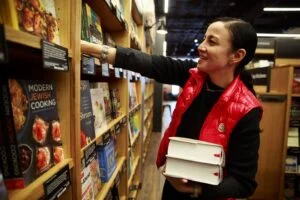

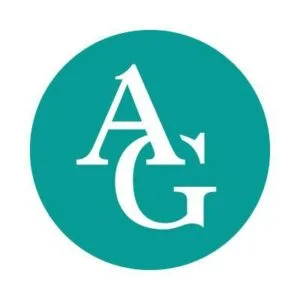
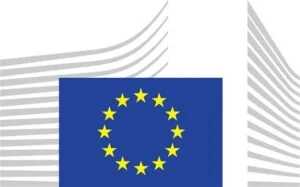
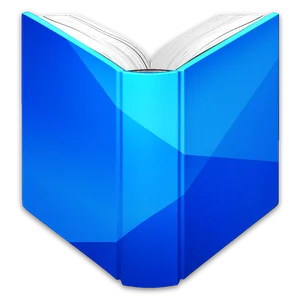
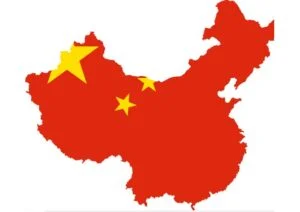
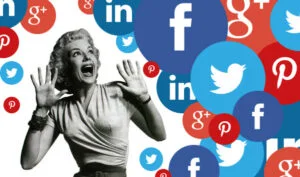





[…] the introduction, I reflect on the publishing industry in 2015 (see ALLi's roundup here, also the Sell More Books Show roundup here), how I did with my own 2015 […]
[…] the introduction, I reflect on the publishing industry in 2015 (see ALLi’s roundup here, also the Sell More Books Show roundup here), how I did with my own 2015 […]
[…] the introduction, I reflect on the publishing industry in 2015 (see ALLi’s roundup here, also the Sell More Books Show roundup here), how I did with my own 2015 […]
[…] Valerie Shanley The rise and fall and rise of e-books, royalty descents, new arrivals, sudden departures, court […]
“Two legal actions in the US against Author Solutions (ASI), the self-publishing provider on the radar of the ALLi Watchdog team, were dismissed and discontinued respectively.”
While this is technically true, it is a little misleading. Not your fault, this is how it has been reported by Publishers Weekly. The cases were actually settled in the normal manner – I spoke to the plaintiffs’ lawyers to confirm same. As to why PW (and the Bookseller) reported the cases as being “dismissed” or “discontinued” rather than settled, well, I’m sure PW having a lucrative partnership with Author Solutions is nothing to do with it.
It sure would be interesting to know what the settlement terms were.
David – many thanks for clarification on those cases (always appreciate your insights on self-publishing reports). V
That’s a great overview, Valerie!
On subscription services, the year winds up with Playster’s international launch in over 100 countries, and great news for indies as Draft2Digital is lined up to get our titles into Playster next year.
https://www.facebook.com/groups/441469159372773/permalink/473443082842047/
Mark – appreciate your own International Indie Author blog too for lots of stories over they year – and here’s to more of them in 2016!
Wow, what a marathon round-up! Thanks, Val. I wonder what next year will hold for us?
Hi Debbie:
I wish you and all members a wonderful Christmas and a wonderful 2016.